Beijing invests in influence
By Frank Mouritz, Marshall Center research associate and Adéla Šelepová, Charles University graduate student
China is an economic development success story. The annual growth of its gross domestic product (GDP) consistently exceeded 8% from the 1990s until the early 2010s, and it is estimated that in 2019 it still exceeded 6%. This enduring boom created a historically unprecedented increase in wealth and living standards. More than 60% of the Chinese population lived below the poverty line in the early 1980s. Today, the Chinese are the world’s top buyers of luxury goods. China’s economic success is admired and studied around the world.
An increasing number of countries are tempted to mimic Beijing’s economic approach and switch from free-market models to state-run capitalism. The appeal is especially high for developing countries for which China’s example raises hopes that they, too, can catch up to the developed world. Even some European countries are starting to look to Beijing for economic guidance. The Washington Consensus of economic reform could soon be replaced by a Beijing Consensus. Consequently, it is not surprising that countries around the world actively seek to cooperate with China in order to profit from China’s economic rise and become part of the economic miracle.
For China, this climate offers the chance to use economic means to increase its global political influence. Depending on a country’s economic situation, China uses different forms of economic statecraft, adapting to each country’s specific economic needs. Broadly speaking, advanced economies are mainly interested in economic cooperation between local and Chinese companies; medium-size economies mainly want China to invest in local businesses; and developing and emerging countries mainly want to attract Chinese loans to finance development projects.
In Europe, China’s economic statecraft has had mixed results. In countries with advanced economies, such as France and Germany, there has been more criticism of close economic cooperation with China after state-backed Chinese companies started to acquire large shareholdings in companies in key economic sectors.
Many countries with medium-size and emerging economies, however, have welcomed China with open arms. Take the Czech Republic, for example: President Miloš Zeman hopes that his country will become “the unsinkable aircraft carrier of Chinese investment expansion” and promised Chinese investments of 8.3 billion euros through 2020.
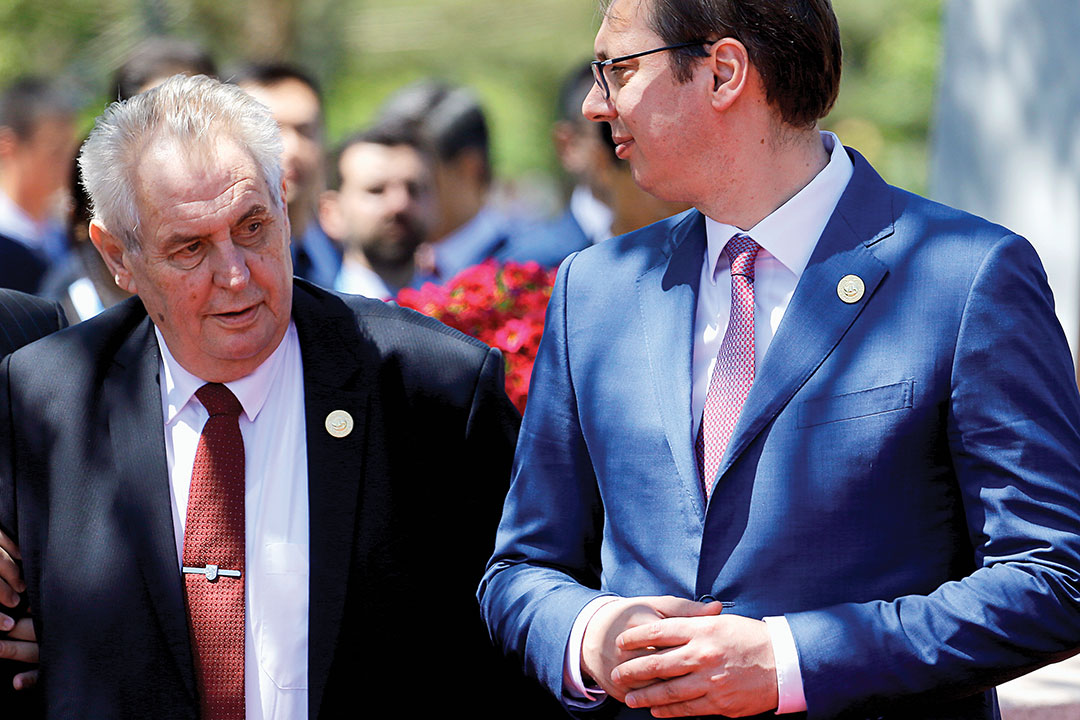
When the Chinese conglomerate CEFC China Energy invested $1 billion in a financial company, an airline, a media outlet and the Czech Republic’s oldest football club, Slavia Prague, in 2015, Zeman thanked CEFC’s CEO Ye Jianming by appointing him as his special economic advisor. In this function, Ye was part of the official Czech delegation for Zeman’s state visit to China. Bringing a foreign national from the host country to a state visit was not only unprecedented for the Czech Republic, but also irritated Chinese diplomats. In the meantime, Ye has been detained in China on charges of economic crimes, and CEFC’s shareholdings abroad have been taken over by the state-owned company CITIC to limit the reputational damage. The result has been that Chinese investment decreased to 90 million euros in 2019, which makes China only the 20th largest foreign investor in the Czech Republic.
Despite the disappointing track record of economic engagement with China, Zeman has not given up hope for a close economic partnership and vehemently opposes stronger European Union foreign investment screening regulation. He is one of very few European statesmen who openly side with Huawei in the EU-wide debate over whether it is safe to use Huawei equipment in national 5G networks. Zeman — much to the disappointment of his security agencies — has repeatedly claimed that allegations of, and concerns over, espionage against Huawei are not supported by evidence and called the current political debate an unfair campaign.
The desire of countries such as the Czech Republic to attract Chinese investments and loans can be used by Beijing as a foreign policy tool. One Belt, One Road (OBOR), what the Chinese now call the Belt and Road Initiative, is China’s global infrastructure development and investment strategy and is a logical step to make use of China’s appeal in the world. Countries want to be part of OBOR to become economic partners with China and to get access to Chinese loans for infrastructure projects, even if the economic usefulness of the projects is dubious. China benefits in that the new roads, railways, ports and pipelines better connect its economy to the rest of the world. China’s calculus is that OBOR will increase its stake in global value chains and allow China to expand its export markets. Another benefit is that Chinese construction companies are usually awarded the contracts to build the infrastructure. Thus, OBOR is also a stimulus package for the Chinese construction sector at a time when infrastructure expansion in China has reached a limit and is slowing.
The largest Chinese loan for an infrastructure project in Europe has been granted to Montenegro for the Bar-Podgorica-Belgrade motorway. The motorway will connect Montenegro’s main seaport, Bar, with the capital, Podgorica, and continue to the Serbian border. Montenegro currently has no motorways and hopes that this road will increase connectivity within the country, as well as with the rest of Europe by linking to a European motorway network. So far, China has granted loans amounting to 1.3 billion euros, 85% coming from the state-owned Export-Import Bank of China, which is a huge sum for a country with a total GDP of roughly 4.6 billion euros in 2018.
The construction contract was awarded to China Road and Bridge Corp. (CRBC) without an open tender and in such a rush that it is full of flaws, such as not covering motorway on-ramps. The contract exempts CRBC from value-added taxes or customs in Montenegro, and since most of the workers are brought in from China, the local economy benefits only very little. Government debt increased from 63% of GDP in 2012 to 80% in 2019, mainly because of the motorway project. The first 41 kilometers have been finished, but construction of the next 80 kilometers are in question since Montenegro is running into problems refinancing debts despite shifting toward a public-private partnership model that will probably involve motorway tolls.
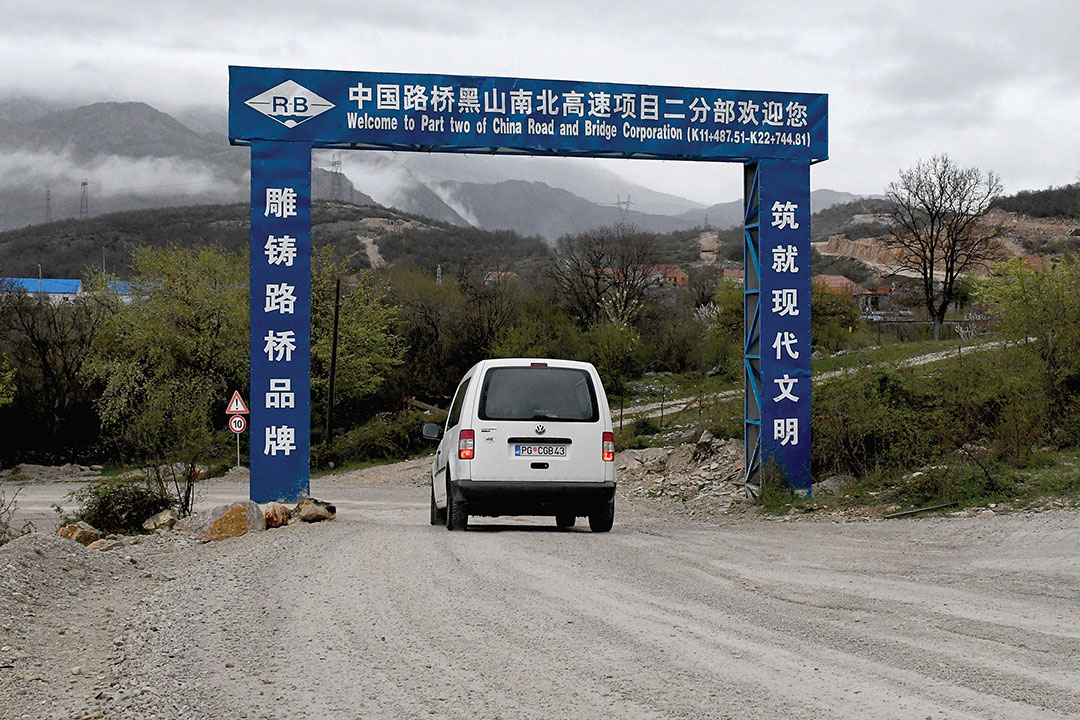
The Center for Global Development, a think tank in the United States, has warned that Montenegro is in serious danger of debt distress due to future OBOR-related financing. This risk will be especially high if the new motorway does not achieve the desired economic effects. Serbia has delayed work on the motorway from Belgrade to the Montenegrin border, raising fears of a motorway to nowhere. Even if Serbia completes its part of the motorway, it remains dubious that the traffic will justify the costs. Montenegro failed twice to secure funding from the European Investment Bank because two feasibility studies by international consultancy firms, in 2006 and 2012, rated the project as uneconomic. In a worst-case scenario, Montenegro will become highly indebted to China without boosting its GDP enough to repay the loans. The contract safeguards China against loan default by granting the right to claim territory as collateral. The contract also stipulates that any dispute settlement would take place in China. Even more valuable for China might be the gain in political influence. Montenegro is a NATO member and an EU-candidate country. A political ally and foothold on Europe’s southeastern flank could be valuable. Some hawkish commentators even worry that China might demand commercial and military access to Montenegro’s ports as an alternative form of compensation.
And then there is the bigger picture: Montenegro is a very small country and not that relevant in political terms, but it can be a starting place for increased Chinese influence in the Balkans and Eastern Europe. China initiated a dialogue with 17 Eastern and Southeastern European countries who want to become part of OBOR. Among the countries of the so-called Cooperation between China and Central and Eastern European Countries (China-CEEC), or 17+1, initiative are Western Balkan countries such as Montenegro and Serbia, but also 11 EU member states, including the Czech Republic. While it is too early to tell if China-CEEC will be a successful format, it has the potential to shift great power competition in this part of the world in China’s favor. Balkan countries are especially torn between closer alignment with Europe and the U.S. and deeper engagement with China. This is somewhat understandable because full integration into the political West has so far been denied and China is a very attractive alternative partner due to its economic dynamic.
However, even EU member states that have access to development finance via the European Structural and Investment Funds have not been immune to Chinese influence, as the example of the Czech Republic shows. Greece is the latest EU member state to join the China-CEEC (in April 2019), which expanded the initiative from 16+1 to 17+1. The left-wing former government of Alexis Tsipras was very China-friendly. Since 2014, Greece and China have signed several cooperation agreements and facilitated commercial contracts worth $4 billion. The most important acquisition is the Port of Piraeus. The state-owned China Overseas Shipping Group Co. (COSCO) started investing in the harbor in 2008, when Piraeus processed just 430,000 containers per year. COSCO invested hundreds of millions and raised the container handling to 4 million per year. Since 2017, COSCO has held a 67% majority stake in the Piraeus Port Authority and it received a 40-year concession to operate the commercial harbor. China wants to use the port as a hub for the Maritime Silk Road and a gateway into Southern Europe. Apart from the strategic importance of the investment, China also earns a political dividend from its business activities in Greece. Greece blocked the EU from criticizing China’s human rights record at a United Nations Human Rights Council meeting and also intervened when the EU wanted to condemn China’s maritime claims in the South China Sea following a ruling from the Permanent Court of Arbitration in favor of the Philippines. It remains to be seen if the conservative government under Kyriakos Mitsotakis, which came to power in July 2019, will change course. Traditionally, the conservative party, Nea Dimokratika, favors close alignment with the West, but because of high economic dependence on China, it seems unrealistic that Greece will decouple anytime soon.
Montenegro and Greece are two of only a few European OBOR countries in which China is actually executing a large-scale project. Most other countries are still waiting for planned and promised projects to start. It is astonishing that countries are so keen to join 17+1 when, up until now, the initiative is mostly based on promises, and the economic feasibility of the envisioned projects remains uncertain. The express railway from Budapest via Belgrade to Piraeus is years behind schedule, and Hungarian studies estimate it will take at least 130 years before a return on investment is achieved. However, promises and high expectations are currently enough to bring many European countries closer to China and to shift political allegiances.
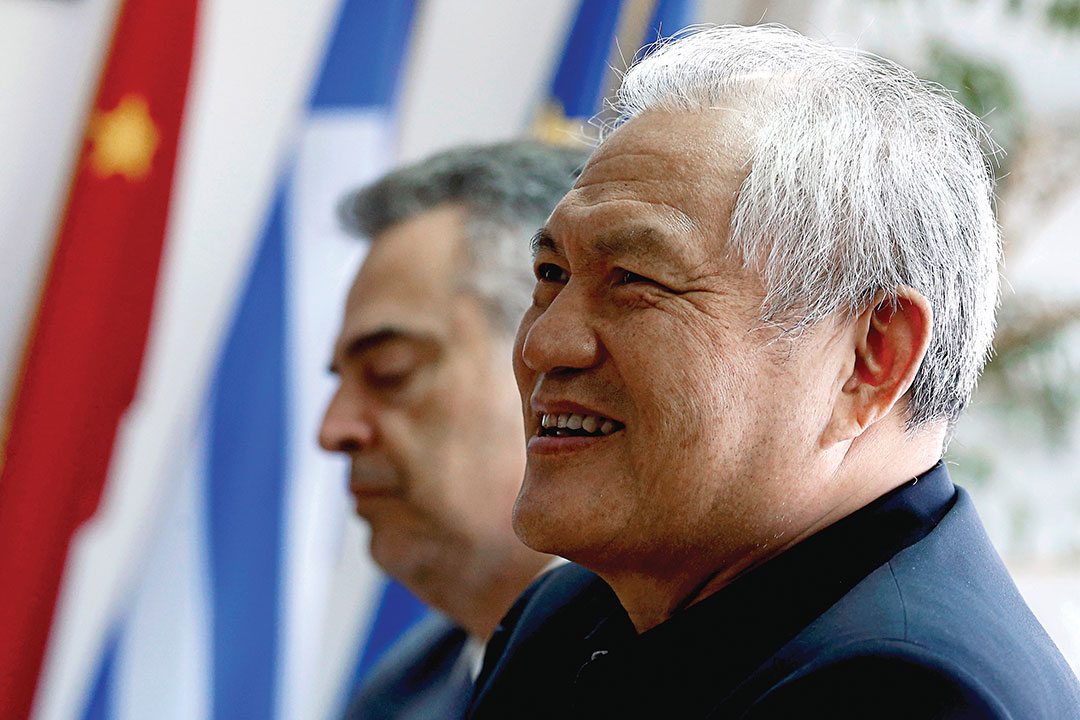
This could change if China’s failure to fulfill its investment promises continues. The amount of investment loans in 17+1 countries declined over the past two years. China has less foreign exchange because it already invested vast amounts in OBOR projects around the world and the slowing economy at home means less revenue. Some analysts see the trend of declining foreign investments as a sign of beginning Chinese fatigue. It is very likely that the outbreak of COVID-19 will increase this trend. China’s domestic economy was hit hard and will likely not recover quickly. Thus, China will be more inward looking for the time being and spend less money abroad.
At the same time, the COVID-19 pandemic also opens an opportunity to intensify relations with European countries in need of medical equipment and experts. Italy, Spain and other European countries will be thankful to China for the supplies of face masks and respirators, especially since sharing resources within the EU has not worked well. This could result in a considerable improvement of Beijing’s public image across the EU, thereby increasing China’s soft power. An airplane with Chinese medical supplies for the Czech Republic was welcomed by half of the Czech government, and it was reported that some of them were on the brink of tears. These are great pictures for China’s internal and external propaganda. Zeman tried to credit himself for the supply delivery by claiming they only arrived thanks to his good relations with China. What he did not mention is that he had to pay above market prices for the delivery. However, it might not matter because the current perception is that all the medical supplies were donated by China.
China is attempting to position itself as benefactor in public health and as a role model for fighting the virus, which could help it gain ground in the international great power competition. When the EU started to run low on medical protective equipment and stopped outside exports, EU candidate country Serbia declared that European solidarity is dead and turned to China for help. This incident has the potential to become the turning point for Serbia’s international alignment. Frustrated with the very slow accession process, Serbia has already intensified economic relations with China and acquired Chinese combat drones. Other countries might also call on China for rescue and it seems China is willing to help.
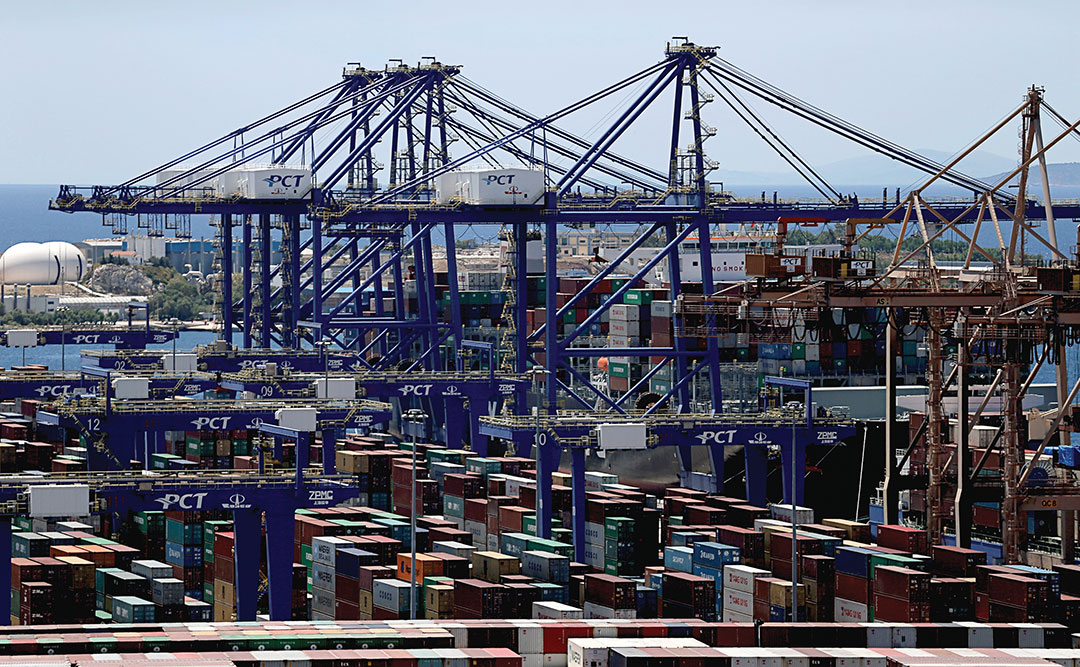
China has a good track record of offering development finance for health care in Asia and Africa, where it helped develop health care infrastructure. During the Ebola outbreak in West Africa, China sent 1,200 workers, military personnel and doctors. In the face of the global COVID-19 pandemic, the concept of a “health silk road,” which has been mostly overlooked despite being part of OBOR since 2017, could get momentum and help to increase local acceptance for China’s global economic expansion amid growing criticism of “debt trap diplomacy.” It would be ironic if a pandemic that started in China, and spread in part because China initially tried to cover up the outbreak, would ultimately promote China’s standing in the world.
Technology is another field of competition between the U.S. and China. China’s technological achievements have become a source of political influence. Its top tech companies — Tencent, Baidu, Alibaba and Huawei — already compete with U.S. companies and are even ahead in certain niches. They are not yet major players in the U.S. and Europe but are growing rapidly in other parts of the world. Chinese information technology (IT) solutions and hardware, such as cheap smart phones, are especially popular in Africa and on the Indian subcontinent. Tencent and Alibaba are the world’s sixth and seventh largest corporations by market capitalization. Lenovo is the leading company for desktop and notebook computers, with a global market share of 24%; U.S. laptop retailer HP has been relegated to second place with 22%. When more and more people use Chinese software and hardware, the assessment of the quality of “made in China” will change.
Technological leadership can be a way for a country to promote itself and to influence attitudes. For example, Huawei is considered to have a competitive edge in 5G technology and offers cheaper products. Huawei equipment has become very popular among European telecommunications companies that already use it widely in 4G networks. As many as 47 European telecommunications providers have signed contracts with Huawei to help build out their 5G networks, despite widespread discussions about information safety and espionage. Huawei has become so popular that European telecommunications companies even try to convince policymakers not to exclude it from national 5G networks. The popularity of Huawei is all the more astonishing because it is not clear that Huawei has a competitive edge over European competitors Ericsson and Nokia. Ericsson was the first company to launch 5G across four continents and has 79 5G contracts in place around the world. “Made in China” may now have more appeal than “made in Europe” in terms of IT products.
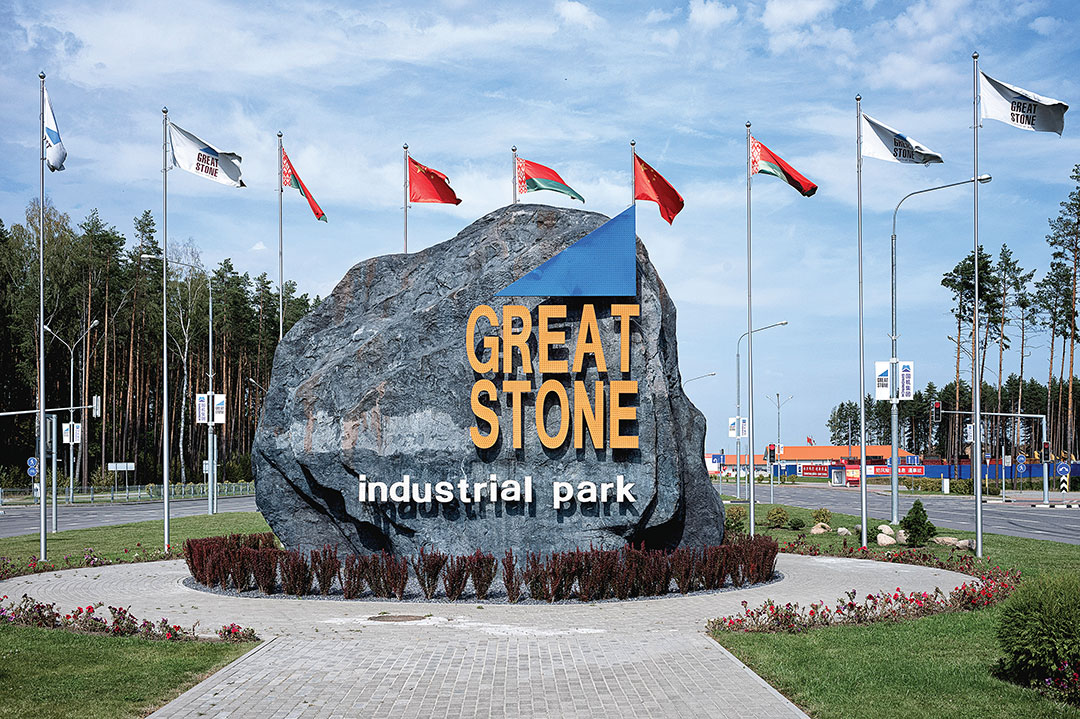
The 5G buildup has become so politicized that the U.S. felt compelled to intervene and warned its European allies that it would reconsider security cooperation with countries that use Huawei gear in their 5G networks, basically declaring 5G a subject of great power competition in which European nations would need to choose between the U.S. and China. It is remarkable that most countries decided they would prefer to alienate the U.S. than China. China successfully used EU countries’ economic dependence as a political pressure point. Countries that considered excluding Huawei altogether were threatened by China with retaliation against their companies that export to China, or those that have large business operations in China. Countries such as the United Kingdom that changed their initial decision and eventually banned Huawei equipment from 5G networks only did so after controversial internal debates and after the U.S. launched sanctions against the company that might negatively affect the technology and security of its gear.
In terms of economic and political alignment, Europe is increasingly caught between the U.S. and China. Governments across Europe wonder whether China’s economic model is superior, whether China is the more promising economic partner, whether China is a better place to look for investments, whether China offers better technologies and, since the COVID-19 pandemic, may even wonder which country is more capable of solving a global crisis. Trans-Atlantic relations remain strong in both economic and political terms. The U.S. is still the most important trading partner for almost all European countries and the best guarantor for the continuation of a liberal international order. However, it can no longer be taken for granted that the trans-Atlantic bond will prevail over China’s economic appeal.
China is happy to fill any vacuum created by U.S. disengagement and has launched a charm offensive to change Europe’s foreign policy toward China. The intermediate goal is to reduce the level of criticism against China’s authoritarian political system, human rights violations and increasingly assertive foreign policy. In the longer run, China hopes that Europe becomes more open to China’s political ideas and view of the global order. The ultimate goal seems to be to alienate Europe from the U.S. and to offer an alternative partnership.
Europe should not fall for the temptation of Chinese money, but instead form a united trans-Atlantic camp with the U.S. in the great power competition with China. The Transatlantic Trade and Investment Partnership would have offered a great opportunity to both strengthen the trans-Atlantic bond and to set global standards in trade and governance that would make it harder for China to use economic statecraft as a tool of power.


Comments are closed.